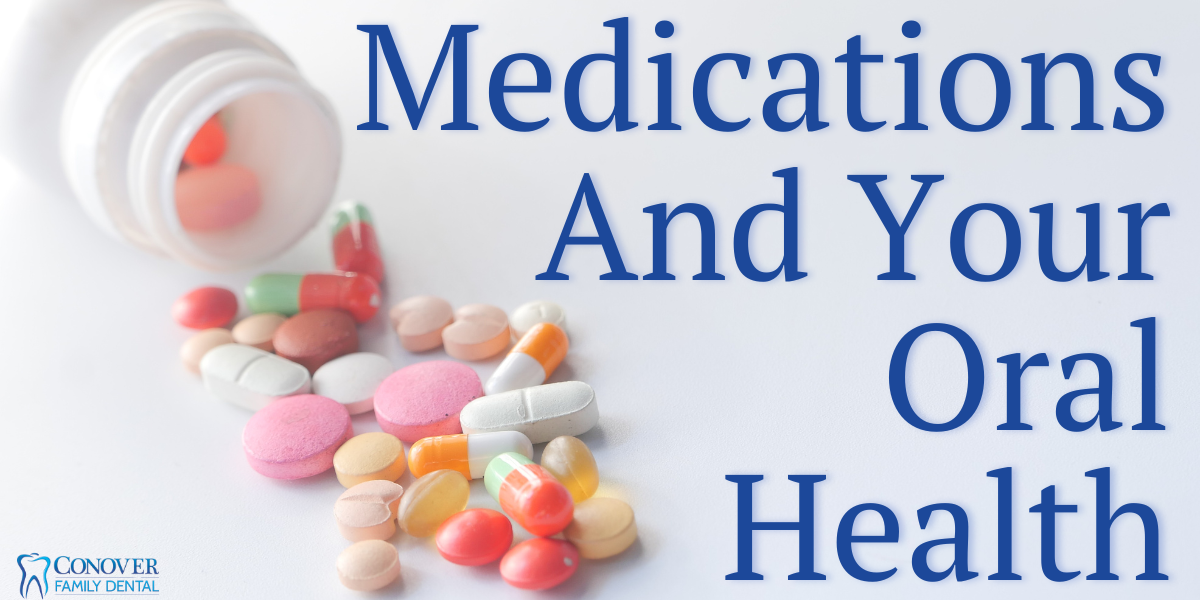How Medications Can Impact Your Oral Health
When you start a new medication, your mouth probably isn’t the first thing on your mind. But many commonly used drugs—including over-the-counter medicines, vitamins and supplements—can impact your oral health. At Conover Family Dental in Cincinnati, OH, we help patients understand how medications affect their teeth and gums so they can maintain a healthy smile at every stage of life.
Why Your Medication List Matters
Sharing your complete and up-to-date medication list with your dentist is important. Some medicines can influence our treatment decisions, increase the risk of complications during dental procedures, or contribute to oral side effects that require special care. This list should include everything from daily prescriptions and occasional pain relievers to topical treatments, herbal supplements and chewable vitamins.
Common Side Effects to Be Aware Of
Medications can affect your mouth in more ways than you might expect. While the side effects vary depending on the type of medication, a few key issues show up frequently. Understanding what to look for can help you avoid potential problems and protect your oral health.
- Dry Mouth: Dozens of medications list dry mouth as a side effect—including antihistamines, antidepressants, blood pressure medications, and muscle relaxants. A dry mouth isn’t just uncomfortable; it also creates an ideal environment for plaque to build up and increases your risk of cavities and gum disease. Staying hydrated and using a dentist-recommended mouth rinse can alleviate symptoms.
- Gum Changes: Some medications, such as calcium channel blockers and anti-seizure drugs, can cause your gums to swell or overgrow. These changes may make cleaning your teeth harder and increase your risk of gum disease. Regular cleanings and consistent at-home care are key.
- Unusual Bleeding: Blood thinners and certain anti-inflammatory medications can make it harder for blood to clot. This issue may increase bleeding during dental procedures. Always tell your dentist if you take aspirin, warfarin, or similar medications before a cleaning, extraction, or other treatment.
- Taste Changes and Oral Irritation: Some medications can alter your sense of taste or cause a lingering metallic or bitter flavor. Others may lead to mouth sores or soft tissue irritation. If this happens, let your dentist know so they can suggest options to ease discomfort and keep your mouth healthy.
Protect Your Oral Health with the Right Information
Knowing how your medications affect your mouth allows your dental team to provide more personalized, effective care. At Conover Family Dental, we review your medical history, adjust your care plan as needed, and offer advice to help you avoid potential issues.
If it’s been a while since your last visit or you’ve recently started a new medication and have questions, call our dental office located in Cincinnati, OH.







